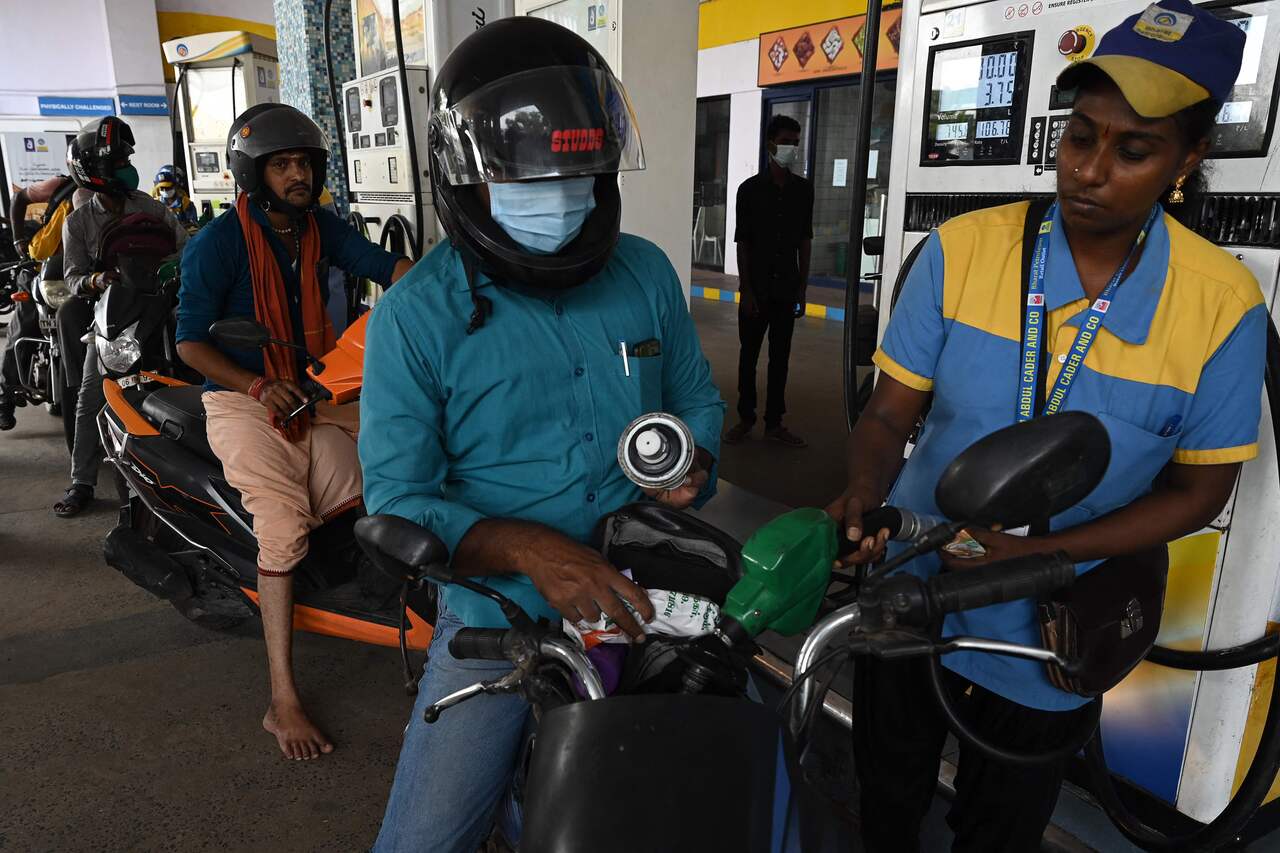Fuel hikes anger food delivery drivers and truckers across Asia
Sign up now: Get ST's newsletters delivered to your inbox

Pump prices for diesel in New Delhi have increased 6.5 per cent after a freeze of more than four months.
PHOTO: AFP
Follow topic:
SEOUL (BLOOMBERG) - Sky-high fuel prices are sparking waves of anger and frustration throughout the ranks of truckers and food delivery drivers in Asia, causing concerns over potential disruptions that could add to supply chain risks.
South Korea's average diesel price last week jumped 44 per cent from a year earlier to the highest since 2008, while petrol surged more than 30 per cent, according to data from Korea National Oil Corp. The fuel costs are rising at a time when freight rates and delivery fees have remained unchanged, directly impacting workers' wages, union groups that represent the drivers said.
"The spike in petrol prices is a huge burden on us," said Mr Gu Gyo-hyeon, a director at Rider Union, which represents 1,000 food delivery drivers in South Korea. "Unlike other industries, we get zero subsidies from the government, which makes it even harder for us to maintain our jobs."
Surging energy costs have been adding inflationary pressure across the globe, affecting everything from Uber rides to children's toys as oil underpins essential aspects of the economy like shipping and manufacturing.
Japan has maximised the subsidy provided to oil refiners, and Pakistan is risking its US$6 billion (S$8 billion) bailout programme with the International Monetary Fund by cutting fuel prices and pledging not to increase them until at least June.
Japan has maximised the subsidy provided to oil refiners, and Pakistan is risking its US$6 billion (S$8 billion) bailout programme with the International Monetary Fund by cutting fuel prices and pledging not to increase them until at least June.
In response to the growing pressure, ride-hailing companies and other transportation providers are taking action. In the United States, Lyft and rival Uber Technologies added surcharges in March to rides to help drivers, while Grab Holdings was among several companies in Singapore making similar moves to ease drivers' petrol bills. In Tokyo, taxi drivers are seeking their first fare hike in 15 years.
Pump prices for diesel in New Delhi have increased 6.5 per cent after a freeze of more than four months ended on March 22, sparking a protest from opposition lawmakers in India's Parliament. The spike is destroying the road transport sector, as diesel accounts for about 70 per cent of operating costs, according to Mr Kultaran Singh Atwal, president of the All India Motor Transport Congress, which represents about 10 million truck and bus operators.
Operators of cargo trucks in South Korea that weigh 25 tonnes had to pay about 2.5 million won (S$2,800) more on average for diesel in March compared with a year earlier, according to the Cargo Truckers Solidarity, which is affiliated with the Korean Public Service and Transportation Workers' Union. Food delivery drivers are paying about 50,000 won more to fill up their petrol tanks each month, Mr Gu said.
South Korea has extended a reduction in fuel taxes for another three months through July to rein in inflation. Still, workers from the food delivery and trucking sectors, services that became even more crucial during the Covid-19 pandemic, are seeking additional government support to offset the soaring fuel prices, the union groups said.
"The skyrocketing diesel prices are leading us to suffer from greater losses if we continue to stay on the road," Mr Lee Bong-ju, president of the Cargo Truckers Solidarity, said at a briefing last week. "But we have to bite the bullet and continue working over fears that we may lose our work contracts."

